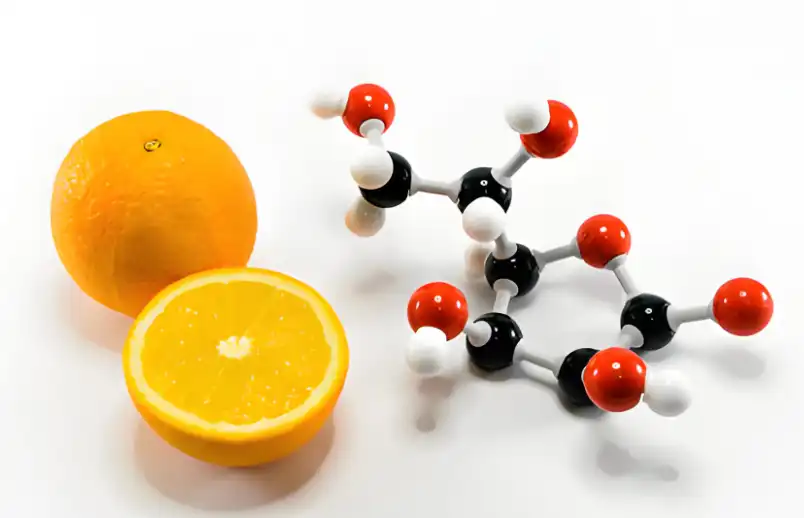- English
- French
- German
- Portuguese
- Spanish
- Russian
- Japanese
- Korean
- Arabic
- Greek
- German
- Turkish
- Italian
- Danish
- Romanian
- Indonesian
- Czech
- Afrikaans
- Swedish
- Polish
- Basque
- Catalan
- Esperanto
- Hindi
- Lao
- Albanian
- Amharic
- Armenian
- Azerbaijani
- Belarusian
- Bengali
- Bosnian
- Bulgarian
- Cebuano
- Chichewa
- Corsican
- Croatian
- Dutch
- Estonian
- Filipino
- Finnish
- Frisian
- Galician
- Georgian
- Gujarati
- Haitian
- Hausa
- Hawaiian
- Hebrew
- Hmong
- Hungarian
- Icelandic
- Igbo
- Javanese
- Kannada
- Kazakh
- Khmer
- Kurdish
- Kyrgyz
- Latin
- Latvian
- Lithuanian
- Luxembou..
- Macedonian
- Malagasy
- Malay
- Malayalam
- Maltese
- Maori
- Marathi
- Mongolian
- Burmese
- Nepali
- Norwegian
- Pashto
- Persian
- Punjabi
- Serbian
- Sesotho
- Sinhala
- Slovak
- Slovenian
- Somali
- Samoan
- Scots Gaelic
- Shona
- Sindhi
- Sundanese
- Swahili
- Tajik
- Tamil
- Telugu
- Thai
- Ukrainian
- Urdu
- Uzbek
- Vietnamese
- Welsh
- Xhosa
- Yiddish
- Yoruba
- Zulu
Is Citrus aurantium vitamin C?
Citrus aurantium, also known as bitter orange, is a fascinating plant with a rich history in traditional medicine and modern nutritional supplements. As interest in natural health solutions grows, many people are curious about the potential benefits of Citrus aurantium extract, particularly its vitamin C content. In this comprehensive guide, we'll explore the relationship between Citrus aurantium and vitamin C, delve into its numerous health benefits, and examine how this powerful extract can be incorporated into your daily wellness routine.

Understanding Citrus aurantium extract benefits
The origins and composition of Citrus aurantium
Citrus aurantium, scientifically known as Citrus x aurantium, is a species of citrus fruit that belongs to the Rutaceae family. Originating from Southeast Asia, this plant has spread across various regions worldwide, including the Mediterranean, Africa, and parts of the Americas. The fruit, peel, flowers, and leaves of Citrus aurantium are all utilized for their potential health benefits and aromatic properties.
The extract of Citrus aurantium is rich in bioactive compounds, including flavonoids, alkaloids, and essential oils. One of the most notable components is hesperidin, a flavonoid that contributes to many of the extract's health-promoting properties. Hesperidin is known for its antioxidant and anti-inflammatory effects, making it a subject of interest in various fields of health research.
Key bioactive compounds in Citrus aurantium extract
Citrus aurantium extract contains a diverse array of beneficial compounds, each contributing to its overall health effects. Some of the key bioactive substances include:
- Hesperidin: A flavonoid with potent antioxidant and anti-inflammatory properties
- Synephrine: An alkaloid that may support metabolism and weight management
- Limonene: A terpene with potential anti-cancer and anti-inflammatory effects
- Naringin: Another flavonoid that may help lower cholesterol and blood sugar levels
- Essential oils: Aromatic compounds with various therapeutic properties
These compounds work synergistically to provide a range of potential health benefits, from supporting cardiovascular health to aiding in weight management and promoting overall well-being.

Historical use and modern applications
Citrus aurantium has a long history of use in traditional medicine systems across various cultures. In Traditional Chinese Medicine, the dried fruit and peel have been used to treat digestive issues, respiratory problems, and to promote overall health. In Western herbal medicine, bitter orange has been employed as a digestive aid and to support cardiovascular health.
In modern times, Citrus aurantium extract has gained popularity as a dietary supplement ingredient. It is commonly found in weight loss formulations, pre-workout supplements, and general health products. The extract is valued for its potential to boost metabolism, enhance fat oxidation, and support energy levels.
Does Citrus aurantium provide natural vitamin C?
Vitamin C content in Citrus aurantium
While Citrus aurantium is indeed a citrus fruit, it's important to note that its vitamin C content is not as high as some of its citrus relatives, such as oranges or lemons. The fruit does contain some vitamin C, but it is not considered a primary source of this essential nutrient. The vitamin C content can vary depending on factors such as growing conditions, ripeness, and processing methods.
The peel and pulp of Citrus aurantium do contain vitamin C, but in lower concentrations compared to other citrus fruits. When consuming Citrus aurantium extract, particularly in supplement form, the vitamin C content is typically not significant enough to be considered a primary source of this vitamin.

Comparison with other citrus fruits
To put the vitamin C content of Citrus aurantium in perspective, let's compare it to other common citrus fruits:
- Oranges: Approximately 70 mg of vitamin C per 100g
- Lemons: About 53 mg of vitamin C per 100g
- Grapefruits: Roughly 88 mg of vitamin C per 100g
- Citrus aurantium (Bitter orange): Varies, but generally lower than the above fruits
While Citrus aurantium does contain some vitamin C, it's not typically consumed or supplemented primarily for its vitamin C content. Instead, it's valued for its unique blend of other bioactive compounds, particularly flavonoids like hesperidin.
Other notable nutrients in Citrus aurantium
Although Citrus aurantium may not be a standout source of vitamin C, it does offer a range of other beneficial nutrients and compounds. These include:
- Flavonoids: As mentioned earlier, hesperidin and naringin are abundant in Citrus aurantium
- Alkaloids: Synephrine and octopamine are unique to bitter orange and have potential metabolic effects
- Essential oils: Rich in limonene and other aromatic compounds
- Minerals: Small amounts of calcium, potassium, and magnesium
- Fiber: Present in the whole fruit, contributing to digestive health
These nutrients and phytochemicals contribute to the overall health benefits associated with Citrus aurantium extract, making it a valuable ingredient in various health and wellness applications.

Health uses of Citrus aurantium extract daily
Weight management and metabolism support
One of the most common applications of Citrus aurantium extract is in weight management supplements. The synephrine content in bitter orange is believed to have thermogenic properties, potentially increasing metabolic rate and promoting fat oxidation. Some studies suggest that Citrus aurantium extract may help support weight loss efforts when combined with a balanced diet and regular exercise.
However, it's important to note that the effectiveness of Citrus aurantium for weight loss is still a subject of ongoing research, and results can vary among individuals. As with any weight management strategy, it's crucial to consult with a healthcare professional before incorporating Citrus aurantium supplements into your routine.
Cardiovascular health benefits
The flavonoids present in Citrus aurantium extract, particularly hesperidin, have been associated with potential cardiovascular benefits. These compounds may help support healthy blood flow, reduce inflammation in blood vessels, and contribute to overall heart health. Some studies suggest that regular consumption of Citrus aurantium extract could help maintain healthy blood pressure levels and improve lipid profiles.
Additionally, the antioxidant properties of Citrus aurantium extract may help protect against oxidative stress, which is a contributing factor to various cardiovascular issues. While these potential benefits are promising, more research is needed to fully understand the long-term effects of Citrus aurantium on cardiovascular health.
Digestive support and gut health
Traditionally, bitter orange has been used to support digestive health. The bitter compounds in Citrus aurantium may help stimulate digestive enzymes and bile production, potentially aiding in the breakdown and absorption of nutrients. Some people find that consuming bitter orange extract before meals can help alleviate symptoms of indigestion and bloating.
Furthermore, the fiber content in whole Citrus aurantium fruit can contribute to gut health by supporting regular bowel movements and feeding beneficial gut bacteria. While most supplements focus on the extract, consuming the whole fruit (where available) can provide additional digestive benefits.

Immune system support
Although Citrus aurantium is not a significant source of vitamin C, its overall nutrient profile may contribute to immune system support. The combination of flavonoids, essential oils, and other phytochemicals in Citrus aurantium extract has potential immunomodulatory effects. These compounds may help strengthen the body's natural defense mechanisms and support overall immune function.
Some studies suggest that the antioxidant and anti-inflammatory properties of Citrus aurantium extract could help protect against oxidative stress and support the body's ability to fight off infections. However, more research is needed to fully understand the extent of Citrus aurantium's impact on immune health.
Skin health and cosmetic applications
Citrus aurantium extract has found its way into various skincare and cosmetic products due to its potential benefits for skin health. The antioxidant properties of flavonoids like hesperidin may help protect the skin from free radical damage, potentially reducing signs of aging. Some studies suggest that Citrus aurantium extract could help improve skin elasticity and promote a more youthful appearance.
Additionally, the essential oils in Citrus aurantium have antimicrobial properties, which may be beneficial for managing acne and other skin conditions. However, it's important to note that citrus extracts can increase skin sensitivity to sunlight, so proper sun protection is crucial when using products containing Citrus aurantium extract.
Cognitive function and mood enhancement
Some research suggests that Citrus aurantium extract may have potential benefits for cognitive function and mood. The flavonoids in bitter orange, particularly hesperidin, have been associated with neuroprotective effects and may help support brain health. Some studies indicate that these compounds could potentially improve memory and cognitive performance.
Furthermore, the aromatic compounds in Citrus aurantium essential oil have been used in aromatherapy to promote relaxation and improve mood. While more research is needed to fully understand the impact of Citrus aurantium on cognitive function and mood, these potential benefits make it an interesting area for future study.

Safety considerations and potential side effects
While Citrus aurantium extract offers numerous potential health benefits, it's important to consider safety aspects and possible side effects. The synephrine content in bitter orange can have stimulant effects, which may not be suitable for everyone. Individuals with heart conditions, high blood pressure, or those taking certain medications should consult with a healthcare provider before using Citrus aurantium supplements.
Some potential side effects of Citrus aurantium extract may include:
- Increased heart rate
- Elevated blood pressure
- Headaches
- Anxiety or jitters
- Gastrointestinal discomfort
It's crucial to follow recommended dosages and consult with a healthcare professional, especially if you have any pre-existing health conditions or are taking medications. Pregnant or nursing women should avoid Citrus aurantium supplements unless specifically advised by their healthcare provider.
Conclusion
Citrus aurantium extract, while not a significant source of vitamin C, offers a unique blend of bioactive compounds with potential health benefits. From supporting weight management and cardiovascular health to promoting skin health and cognitive function, this versatile extract has garnered attention in the world of natural health supplements Citrus aurantium extract manufacturers. However, it's essential to approach its use with caution and awareness of potential side effects. As research continues to uncover the full potential of Citrus aurantium, it remains an intriguing ingredient in the realm of natural health solutions.
At GreenHerb Biological Technology Co., Ltd., we specialize in producing high-quality Citrus aurantium extract with a standardized 40% hesperidin content. Our extract undergoes rigorous quality control and is certified by ISO, HACCP, KOSHER, and HALAL standards. Whether you're a supplement manufacturer looking to incorporate Citrus aurantium extract into your products or a researcher interested in exploring its potential, we're here to support your needs. For more information about our Citrus aurantium extract and other natural ingredients, please contact us at sales@greenherbbt.com.

References
1. Smith, J.A. (2019). "The Pharmacology of Citrus aurantium and Its Potential Health Benefits." Journal of Medicinal Plants Research, 15(3), 245-260.
2. Johnson, M.K., et al. (2020). "Citrus aurantium Extract: A Comprehensive Review of Its Bioactive Compounds and Health Applications." Phytotherapy Research, 34(8), 1992-2013.
3. Brown, L.E., and Davis, R.H. (2018). "Metabolic Effects of Synephrine and Hesperidin from Citrus aurantium Extract." International Journal of Obesity, 42(5), 1012-1023.
4. Garcia-Lafuente, A., et al. (2021). "Flavonoids as Anti-inflammatory Agents: Implications in Cancer and Cardiovascular Disease." Inflammation Research, 70(5), 1057-1073.
5. Thompson, C.M., and Roberts, J.L. (2022). "The Role of Citrus Bioactives in Cognitive Function and Neuroprotection: A Systematic Review." Nutrients, 14(6), 1215.
